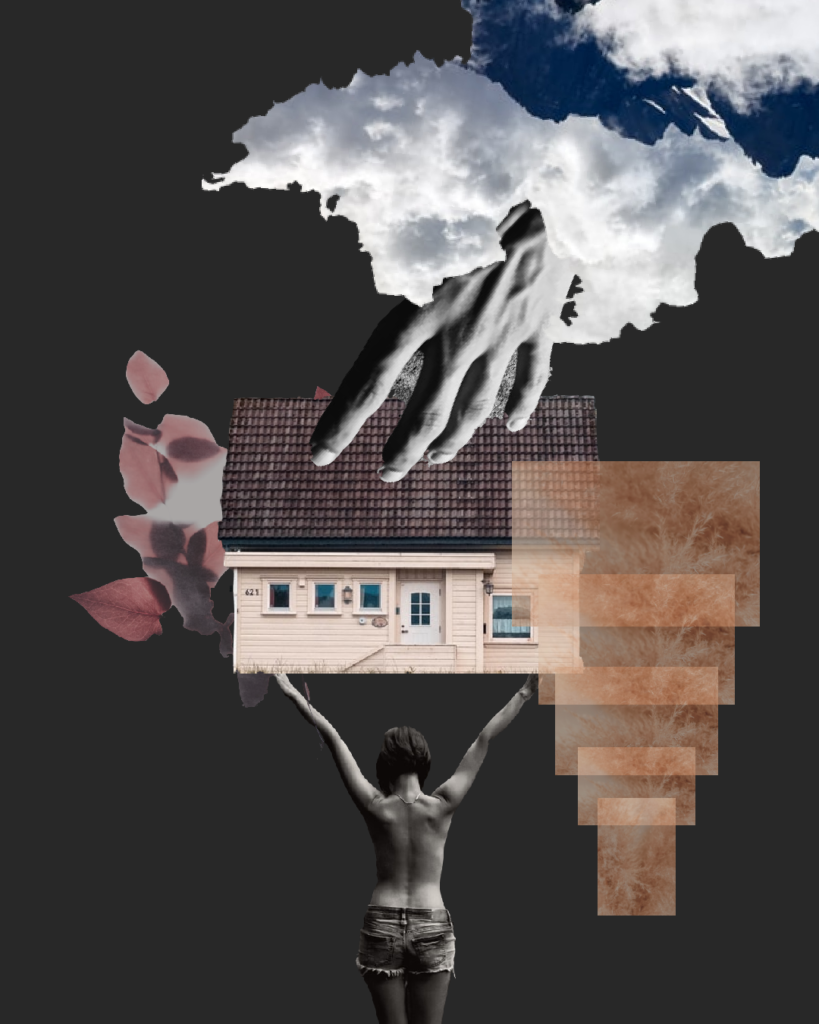Poetry is, according to Priberam, the art of composing or writing verses, usually with harmonious associations of words, rhythms and images.
My grandparents, the two who have already left for a place I don't know, were both illiterate and the greatest poets I've ever known. I found, and continue to find, in every memory I have of them, poetry: in their actions, in their involuntary gestures, in their words, in the way of being in life, in all the memories that creased in me, and they never knew how to read or write. .
Poetry has this thing of being able to be many things, but above all, breaking with everything and wanting to be indefinite.
I often find the definition for poetry in the freedom that comes out of each one's body. The freedom to be exactly what everyone wants, to believe in themselves, in a whole.
For me, poetry is also the way my grandmother teaches me to make a cough syrup with what the earth gives at the right time or the best migas (from the Algarve!) in the (already) sticky iron skillet, even though I know that I will never be able to make them with the same taste, color and shape. But the cuisine mixed with the voice of those who created us is, perhaps, the best poetry we can hear and then taste.
For me, poetry is also who we want and who wants us, around a table; the good and bad restlessness that things create in our body and mind, like being born knowing that life is not forever and still leaving it to live later, but also the days in which we understand and live – of really living – idleness, doing nothing, feeling the sluggishness that can occur when you are human.
Not to mention that, for me, poetry is all the loves that we find throughout our lives, those that leave, those that stay, those that are transformed, our family, the one that exists before us and the one that is built. Ourselves.
I believe that Fernando Pessoa was fragmented because he understood that there was no space to be poetry in one person. That's why he created Ricardo Reis; Alberto Caeiro; Bernardo Soares; Álvaro de Campos, in short, more than fifty lives within his own – what did he do, isn't it poetry?
Álvaro de Campos was conceived and lived in the south of the country, in Tavira.
He gave voice to modern life, to fatigue, to anxiety, to the feeling of being lost, but also to the relief “of not trying to have any philosophy, but with a soul”, which Alberto Caeiro taught him in one of the meetings, as my grandfather told me. she taught, every time she spent the summer with him, that being at table is an act of calm, to enjoy food and the company of others.
Like Álvaro de Campos, I know all this, but sometimes time runs fast, and here comes the poetry of being alive to accompany a time that does not wait for us.
When I learned that, in the city where Álvaro de Campos thought about so many things, his birthday was still being celebrated, and for a month and a half all the associations and generations of a city came together to celebrate this very thing, with the poetry that each one brings in itself, I realized that, even after death, you can continue to teach something, just like my grandparents – and, yes, it is possible for a dead person to be a poem!
And look, Álvaro de Campos' Birthday Party begins exactly with a table – “A table set with more glasses” –, which leads me to want that, if I really have to define what poetry is, after all, I would say which is a table. Because whether it's big, small, oval, round, square, rectangular, symmetrical, full of flaws, patched up, it's just like poetry – it doesn't matter what it is, but what it's for.
Author: Patricia Nogueira – Nborn in Tavira and raised between the mountains and the sea.
He graduated in Communication Sciences at the University of Lisbon and has a postgraduate degree in Branding and Content Marketing at the Escola Superior de Comunicação Social.
Your path has always been in words. Currently, she is a content creator and copywriter, collaborating with communication agencies, and also a journalist on the journalism platform Gerador.
Participates in the organization of Álvaro de Campos' Birthday Party and, in the same context, is the voice of the program “Momentos de Poesia”, on Rádio Gilão.
He created the nights of Restless Poetry and is a full-time traveller.
Author of the illustration: Vinicius Almada foi admitted to the courses of Social Sciences at Universidad Complutense and Administration at Universidad Rey Joan Carlos de Madrid, but decided to dedicate himself to the visual arts.
He studied digital photography at Instituto del Cine in Madrid and then specialized in After Effects and Mapping at Escola d'Informatica y Disseny in Barcelona.
He worked in Granada, Spain, under the name StrbVJ, where he developed the YuRP project: visual compositions based on iconic images of European pictorial or sculptural art, created to accompany pieces of pop, electronic and experimental music in VJ sessions.
Director of photography for short films, video art and documentaries.
In Tavira, where he currently lives, he created these compositions in collaboration with guitarist Josué Nunes for the show Dueto para Guitarra Clássica e Comvisãos Visuais.
His work has been seen in the Algarve in several places, such as Centro Ciência Viva Tavira, Casa Álvaro de Campos, Casa das Artes de Tavira, Café de Pessoa, Almariado, Casa dos Condes de Alcoutim, the Municipal Library of Olhão, the Brazilian Consulate in Faro, and from August, at the Municipal Museum of Faro.
Since 2016, he has been responsible for the graphic and communication design of the annual Festa dos Anos de Álvaro de Campos event, whose logo he designed in 2015.




















Comments